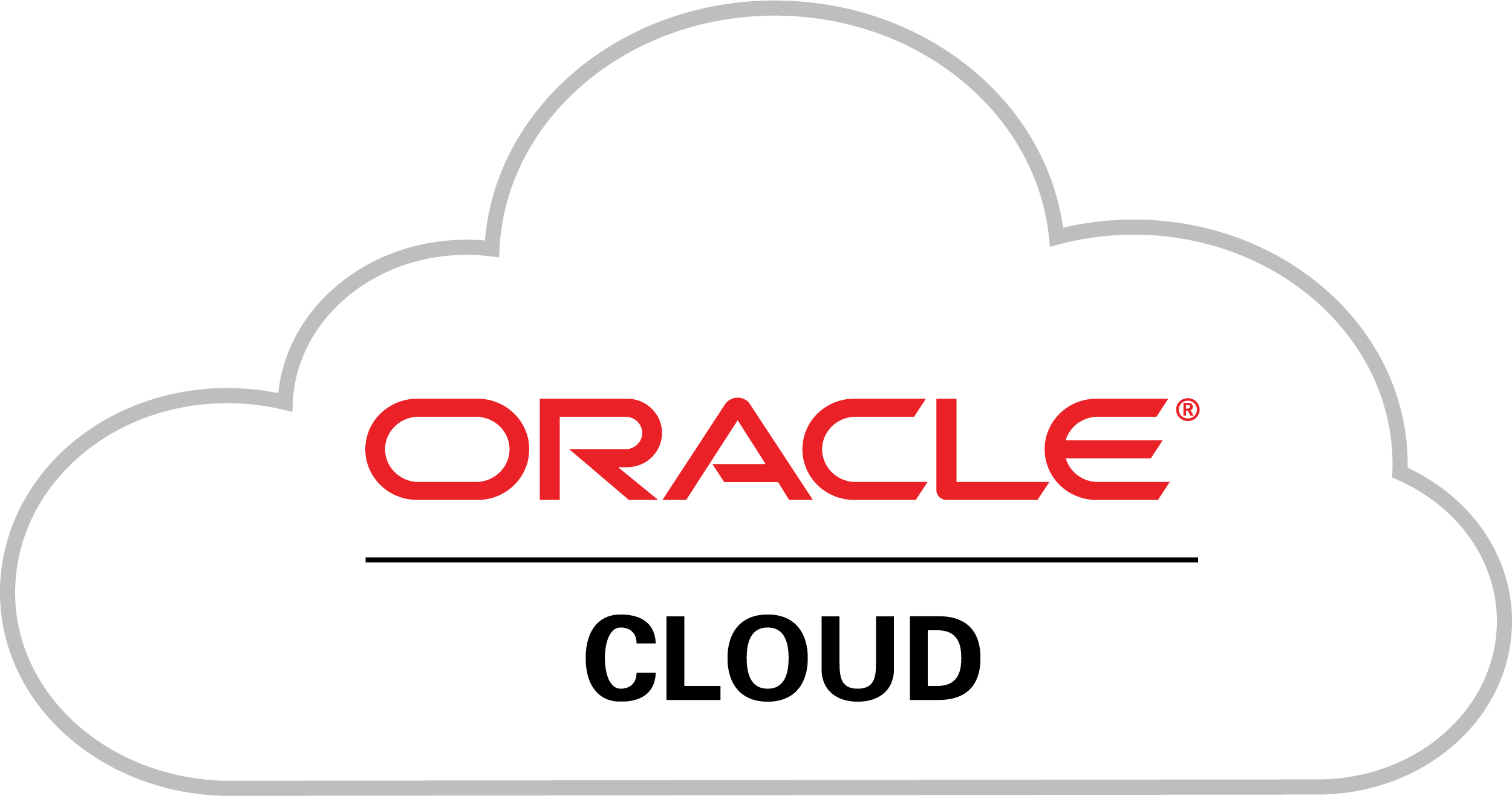Cloud computing refers to the delivery of a variety of services via the Internet. Among the tools and applications available are data storage, servers, databases, networking, and also software. Instead of keeping files on a proprietary hard drive or a local storage device. Cloud-based storage allows you to save them to a remote database. As long as an electronic device has connectivity to the internet. It has access to both the data and the software programs required to run it. Let’s find the most popular Cloud Computing Technologies.
What is meant by cloud computing?
Because the information being accessed is located remotely in the cloud or a virtual place, cloud computing is dubbed as such. Cloud service providers allow customers to store files and apps on remote servers and then access the information via the Internet. This means that the user does not need to be at a specific location to access it, allowing them to work from anywhere. Cloud computing offloads all of the hard labor associated with crunching and processing data from the device you carry or sit at. It also offloads all of that work to massive computer clusters located thousands of miles distant in cyberspace.
Public and private clouds are both possible. For a price, public cloud providers make their services available through the Internet. Private cloud providers, on the other hand, limit the number of users who can use their services. These services are a network-based system that provides hosted services. A hybrid option is also available, which mixes public and private services.
Benefits of Cloud Computing:
Although cloud computing is still a relatively new technology, it is now being used by a wide range of organizations. Including large enterprises, small businesses, non-profits, government agencies, and even individual consumers.
Cost Savings:
You’re not alone if you’re concerned about the cost of switching to cloud computing. The initial expense of adopting a cloud-based server is a problem for 20% of companies. However, those attempting to assess the benefits and drawbacks of using the cloud. Must consider more than simply the initial cost; they must also consider ROI. Once you’re on the cloud, having quick access to your company’s data will save you time and money when starting new projects. For individuals concerned about paying for capabilities, they don’t need or want, most cloud-computing services are pay-as-you-go.
Security:
When it comes to adopting a cloud-computing solution, many businesses are concerned about security. After all, how can you be sure that your files, applications, and other data are secure if they aren’t kept onsite? Well, quite a bit, to be honest. To begin with, a cloud host’s sole responsibility is to closely monitor security, which is significantly more efficient than a traditional in-house system. In which a corporation must divide its resources among a range of IT problems, security being just one of them. While most organizations prefer not to discuss the prospect of internal data theft, the truth is that an alarmingly high percentage of data theft occurs within the company and is committed by employees. When this is the case, keeping critical information offshore can actually be safer. Of course, all of this is extremely abstract, so let’s look at some concrete numbers.
Flexibility:
Your company has a limited amount of time to devote to all of its tasks. If your existing IT solutions force you to devote too much time and energy to the computer and data-storage issues, you won’t be able to focus on meeting business objectives and satisfying customers. You’ll have more time to dedicate to the areas of your business that directly affect your bottom line if you rely on an outside agency to handle all IT hosting and infrastructure. In comparison to hosting on a local server, the cloud provides enterprises with more freedom. Furthermore, if you require additional bandwidth, a cloud-based service may provide it immediately rather than requiring a complex (and costly) upgrade to your IT infrastructure. This increased independence and flexibility can have a substantial impact on your company’s overall efficiency.
Mobility:
Cloud computing enables mobile access to company data via smartphones and gadgets, which, with over 2.6 billion cell phones in use worldwide today, is a wonderful method to ensure that no one is left behind. This function allows employees with busy schedules or who live a considerable distance from the corporate office to stay in touch with clients and co-workers at all times. You may provide easily accessible information to sales personnel who travel, freelance employees, or remote employees via the cloud, allowing them to achieve a better work-life balance. As a result, it’s not surprising that companies that prioritize employee pleasure are up to 24% more likely to expand. Most popular Cloud Computing Technologies.
Insight:
As we move deeper into the digital age, it becomes clear that the old adage “knowledge is power” has been supplanted by the more accurate and current “data is money.” Within the millions of bits of data that surround your customer transactions and business process, there are nuggets of important, actionable information just waiting to be discovered and acted upon. Of course, unless you have access to the correct cloud computing solution, digging through that data to locate these kernels can be challenging. With your data on the cloud, you can quickly add tracking systems and create customized reports to evaluate data across your entire enterprise. Based on these insights, you can increase efficiencies and establish action plans to achieve company goals.
Most popular Cloud Computing Technologies:
Cloud computing is a type of Web-based computing that allows businesses and individuals to use computer resources including virtual machines, databases, processing, memory, services, storage, communications, events, and pay-as-you-go. Older cloud services are frequently improved upon. Unlike traditional computers, you don’t have to pay if you don’t utilize any resources. You have a meter, just like you do with a water or electricity connection, and this meter keeps track of your monthly usage.
Amazon Web Services (AWS):
It was create in 2002 as an Amazon subsidiary. With over 165 fully-featured services available from data centers across the world, AWS (Amazon Web Services) is the world’s most complete and widely utilized cloud platform. This service is use by hundreds of millions of users. AWS provides access to hundreds of services. AWS Data Transfer, Simple Storage Service, DynamoDB, Elastic Compute Cloud, AWS Key Management Service, Amazon CloudWatch, Simple Notification Service, Relational Database Service, Route 53, Simple Queue Service, CloudTrail, and Simple Email Service are just a few of the services that are offered.
Microsoft Azure:
Azure is one of the most rapidly expanding clouds available. Although Azure came out years after AWS and Google Cloud, it is still vying for the title of best cloud services provider. Microsoft Azure recently received a $10 billion government contract in the United States. While income from Microsoft Azure is difficult to forecast, the company divided its revenue in the previous quarter into three categories. Productivity and business processes, intelligent cloud, and personal computing. Azure provides a wide range of services, including AI and machine learning, analytics, blockchain, compute, containers, databases, developer tools, DevOps, identity, and integration.
Google Cloud:

Google’s cloud is the Google cloud platform. Google Cloud, like Amazon Web Services and Microsoft Azure, provides similar services in a variety of categories, including computation, storage, identity. Security, database, AI and machine learning, virtualization, DevOps, and more. Google Cloud Platform (GCP) is a set of cloud computing services provided by Google that run on the same infrastructure as. Google’s internal products such as Google Search, Gmail, file storage, and YouTube. It offers a number of modular cloud services, such as computing, data storage, data analytics, and machine learning, in addition to a set of management tools. A credit card or bank account number is require to register.
Alibaba Cloud:

Alibaba Cloud is a Singapore-based company that was launch in 2009. It was originally create to support Alibaba’s own e-commerce ecosystem, but it is now available to the general public. Alibaba Cloud is China’s largest cloud service provider. Elastic Computing, Storage and CDN, Networking, Database Services, Security, Monitoring and Management, Domains and Websites, Analytics and Data Technology, Application Services. Media Services, Middleware, Cloud Communication, Apsara Stack, and Internet of Things are among the products and services offered by Alibaba. Most popular Cloud Computing Technologies
IBM Cloud:

This Cloud is a suite of cloud computing services for businesses developed by IBM. The IBM cloud offers IaaS, SaaS, and PaaS services via public, private. And hybrid cloud architectures, similar to other cloud service providers. Compute, Network, Storage, Cloud Packs, Management, Security. Database, Analytics, AI, IoT, Mobile, Dev Tools, Blockchain, Integration, Migration, Private Cloud. And VMware are just a few of the technologies available.
The IBM Cloud provides a diverse set of services. It includes both virtual and hardware-based servers, as well as public, private, and management networks. You have comprehensive infrastructure management because hardware and virtual-based servers are merge into a single on-demand cloud platform. IBM’s physical servers are refer to as “bare metal.” These provide clients complete control over their entire server. This significantly lowers the ‘noisy neighbor’ effect.
Oracle:

This cloud platform refers to the company’s cloud service. Oracle Cloud provides Infrastructure as a Service (IaaS), Platform as a Service (PaaS), Software as a Service (SaaS). And Data as a Service (DaaS) to its customers (DaaS). These are some of Oracle’s services: Compute, Storage, Networking, Governance, Database, Load Balancing. DNS Monitoring, Ravello, and FastConnect are all part of Oracle’s IaaS solutions. Data Management, Application Development, Integration, Business Analytics, Security, Management. And Content and Enterprise are just a few of Oracle’s PaaS solutions. most popular Cloud Computing Technologies
Conclusion:
Other clouds may provide some specialized tools and services, so you may wind up selecting alternatives as well. IBM Watson, for example, is a one-of-a-kind product employ in IBM’s cloud service. The majority of large businesses employ numerous clouds. One of my clients uses Amazon Web Services (AWS) for file storage and messaging, Azure for DevOps. Databases, and developer tools, and Google Cloud for documents and emails.
Also read What are the most essential tools that software developers must use?







